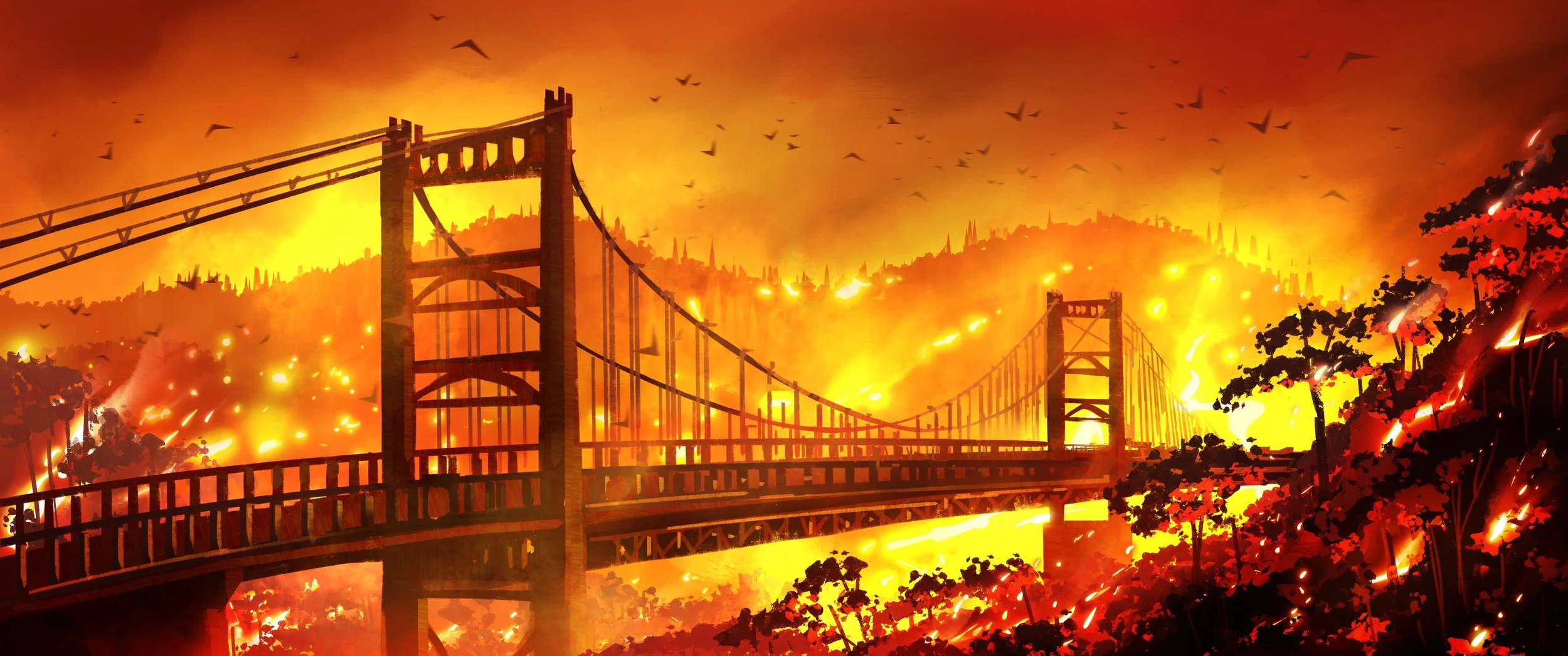The digital paper trail: Your exit strategy lives forever
A suspension bridge engulfed in flames at sunset, symbolizing the permanent consequences of burning professional relationships during career transitions
TL;DR: That Bridge? It’s Not Just Wood.
It’s your future pipeline. Leave like they'll remember you—in a good way.
Blow-ups leave receipts. In 2025, every Slack, DM, and post has a shelf life.
Stand tall, not scorched. Speak your truth without setting fire to your reputation.
With a seemingly endless wave of layoffs sweeping through companies in 2025, it’s tempting to let it rip.
Maybe you’ve just been let go. Maybe you’re fed up with a boss who’s all pressure and no leadership. Maybe you’re finally “free” and about to launch into the consulting world with no one to report to but yourself.
You might be thinking: Now’s the time to say what I really think. Post the truth. Air it out.
I’ve been there.
I remember my first layoff. It came after 16 years. A lot of people I respected—some who were exceptional at their jobs, some who frankly weren’t—were told there was no longer room for them. They were offered financial support, but we all know: a layoff also offers the chance to “tell people how you really feel.”
That Wednesday morning, people packed their things and left. But I had a decision to make.
I was close to wrapping a long, complex contract renewal. If I left, the deal would likely fall apart and my successor would be starting from scratch. So I asked if I could stay through the end of the week. Not because I had any illusions I’d be back—I didn’t. I just felt like it was the right thing to do.
At 5 p.m. on Friday, I got the deal signed. My manager, who waited patiently so he could still make it to a family event, walked me out.
I never expected to return.
But I was invited back. Different department, different role, same organization. And when I asked why, I was told: “Because of how you left.”
That moment has stayed with me.
Never Burn the Bridge
There was a time in my life when I probably subscribed to Don Henley’s line: “Sometimes you get the best light from a burning bridge.”
But not anymore.
As more professionals shift into freelance or consulting roles, the temptation grows to say it all on the way out. Especially when the emotions are fresh. But before you unload in your exit interview or hit “Post” on that spicy LinkedIn farewell, ask yourself this:
Who might be watching?
That client who delayed your invoice may refer you to your next big project. That boss who made things difficult might land at a competitor—or become a champion in a better situation. That annoying stakeholder could end up as a decision-maker at your dream account.
Even reporters. You might be tempted to fire off a correction or callout if you feel misquoted. But the old rule still stands: never get in a fight with someone who buys their ink by the barrel (or in today's world, their pixels by the petabyte).
There’s a Line Between Assertiveness and Arson
None of this means you should stay silent or be a doormat. You can stand up for yourself. You should offer feedback when it’s productive.
But there’s a difference between setting a boundary and burning a bridge. Between expressing frustration and becoming defined by it.
That difference? It shows up in how people remember you—and whether they want to work with you again.
I’ve built a reputation as a bulldog. Some saw that as tenacity. Others saw it as a bull in a china shop. The “what” was strong—but the “how” had a cost: bonuses, promotions, opportunity. I took that feedback seriously. I adjusted. I worked on the how.
So when new roles opened up, I wasn’t hired in spite of the layoff—I was considered because of how I handled it. I never imagined that final week would matter so much.
But it did.
And Now, in the Era of Social Receipts...
Let’s be honest: burning bridges today leaves a digital paper trail. That frustrated post you fired off? Screenshotted. That rant on Slack? Forwarded. That scathing farewell email? Still in someone’s inbox.
Your “mic drop” moment might feel powerful today, but those receipts have a long shelf life. And they show up in search results, in backchannels, and in conversations you’re not part of.
So if you’re considering “unloading” because you’ve been laid off, passed over, or pushed out—pause. Take a breath. Ask yourself: What story will people tell about how you left?
And what might that story unlock down the road?
Now I’m curious: Has not burning a bridge ever come back to serve you well later? I’d love to hear the stories. Drop them in the comments or message me directly.

